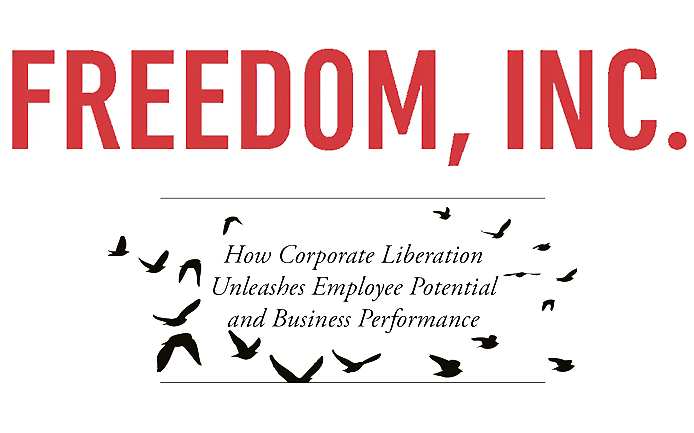 We Should Eliminate Vacation Policy—and the Rest of Bureaucracy with It
We Should Eliminate Vacation Policy—and the Rest of Bureaucracy with It
Isaac Getz
JANUARY 2, 2010
Isaac reacts on the comments to Brian’s TBI article:I cannot but agree with all the previous commentators who warned that dismantling Vacation Policy might be abused by many bosses (and some employees as well). Indeed, such dismantling can succeed only when it’s done as a part of the overall dismantling of bureaucracy in a company.
What Brian could not say in his short article but explained in our book Freedom, Inc. (full disclosure: I’m his co-author) is that not only Vacation Policy should be dismantled but practically ALL policies. Here is an excerpt from the book’s draft on what they dismantled:
“Most freedom-based companies have no organizational charts. Most have no reserved parking or corner offices for executives. Some have no assigned executive offices: everyone, including the CEO, simply selects an open desk. Some have no fixed seating arrangement and don’t cluster desks by department. Some remove the ceilings and install stairs to increase mobility and communication among people. Some have meeting rooms named not after presidents, scientists, or artists but simply after their senior employees—often secretaries. None have time clocks. Most allow employees to set their own work times and some even allow them to set their own salaries. Some have no managers. Some have no titles or ranks. Many allow employees to pick their leaders, and choose their own job descriptions, and in essence invent their own jobs. Some have no Human Resources department. Some have no budgets or even a Finance department. Most have no long-term planning process.”
It isn’t theoretical; it has been practiced by dozens of the highest-performing companies in their industries for decades. The point again is not replacing Vacation Policy by some other policy, nor solely dismantling it. The point is to dismantle the bureaucracy altogether and replace it not by anarchy of every-man-for-himself (which paradoxically is what truly is going on in bureaucracies despite—indeed, because of—all their policies) but by a small set of “unwritten” rules and a freedom and responsibility of every employee to act in a way he or she deems is the best for the company. For those interested in how such freedom-based companies have been built, consult our book.







So: an atomized society of lonely robots with no job security, no predictability in the workplace, no collective sanctioned status asciption (and ultimately no holidays!). The awful thing is that this is the final logic of Americanization.
Thanks Dan, for your comment.
You are right about “atomized robots.” Some of the liberating leaders we described in our book call them “automatons,” and Scott Adams became famous depicting these “cubicle slaves.” Alas, that is the CURRENT situation in the vast majority of companies in all developed countries (it’s worse, in the underdeveloped ones).
What the liberating leaders did was namely creating corporate environments where people are treated as human beings instead of as “lonely robots.” You can read some reviews of our book on this site but better, of course, is to read the book to learn about these exceptionally humane companies.